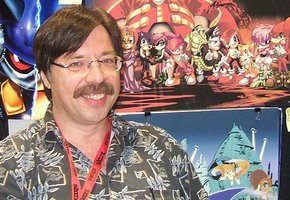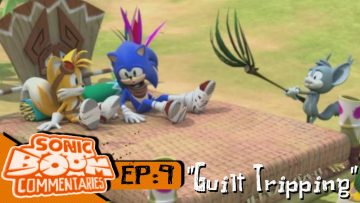
Inside Ken Penders’s Archie Copyright Claims
Across 135 registered certificates with the US Copyright Office, Ken Penders has mostly claimed story credits regarding the work he’s produced over a dozen year career with Archie Comics and the Sonic series, public records show.
The copyrights, all public record, go back as far as the 11th issue of the long running franchise. Claims are made for work spanning from 1994 through 2006 and issue #159–the last issue Penders was involved with before Ian Flynn took over as writer.
Analysis shows much of his claims from the early issues seek little protection aside from stories he wrote, and any two-dimensional artwork he contributed.
“I claim authorship of the text only to the story listed on my claim and nothing beyond that,” says one recorded certificate that seeks protection of the story behind What’s the Big Idea, a side piece which appears in issue 15.
“I did not contribute any material in this publication beyond the text of the one story claimed,” says another certificate that seeks protection for Night of 1,000 Sonics, which appeared in 1995’s issue 19. In this particular claim, Penders points out “Artwork” as a pre-existing material–underscoring the extremely meticulous nature of the claims.
In a third certificate–this one for a Princess Sally side story in issue #60, Penders takes great care of mentioning both text from the main story, other 2D artwork, “story art by Manny Galan, and any material not mentioned in this claim” as “pre-existing material,” or material Penders is not trying to seize rights to.
On a few claims, such as those for the Endgame arc spanning issues 47 through 50, Penders only seeks co-ownership rights. For the final three of four issues that make up Endgame, he even lists co-writers Scott Fulop, Mike Gallagher, and Karl Bollers as co-copyright claimants. It is unclear whether any of the aforementioned authors are aware of these copyright registrations.
The situation gets complicated when investigating copyrights from the heart of Penders’s Archie career–when original characters get involved. In a claim regarding the first issue of The Dark Legion mini-series from 1997, Penders sought the rights to:
Text, 2-dimensional artwork. Co-author of cover art, author of text and Kragok and Dark Legion Character Designs (Uncredited).
That means Penders sought protection for the characters mentioned above. In practice, the US Copyright Office may not have granted him such rights. Correspondence below from the office, as part of the public record, indicates Penders did not follow proper protocol to receive such protection:
Regarding author information and new material included: Characters as such not registrable; registration based on deposited authorship describing, depicting, or embodying the characters. Authority Compendium II 202.02(l).
In fact, while Penders claimed he outright owns many of the characters he created, the records in the Copyright Office mostly show him only claiming ownership to stories in which they star, and not the characters themselves. As an example, TSSZ News found four entries regarding Geoffrey St. John, as part of a 1998 series. But in all certificates, Penders only claims himself as the “author of story text.” We also couldn’t find in any of the claims he registered anything regarding a claim of ownership to Lien-Da, be it story text or otherwise. The same is also true for Rob O’ the Hedge, who Penders also singled out in his Wednesday announcement.
Penders had better luck on only one other character claim. Another record seeking copyright protection for material in Sonic Super Special #11 contains a claim for art on Hershey, which was not contested by the Copyright Office.
The bottom line is that an overwhelming majority of the 135 active certificates are for storylines and artwork Penders created. Those concerned about whether he legitimately owns the rights to several side characters in the comics can worry a bit less, as those claims appear few and far between–if they were granted at all. Whether the rights on the storylines will be upheld–and if Penders gets any withheld compensation for them–may be for the courts to decide, if and when counsel for Archie Comics elects to pursue the case.



![[ID: 6fRr8yynvEw] Youtube Automatic](https://lastminutecontinue.com/wp-content/uploads/2024/09/id-6frr8yynvew-youtube-automatic-360x203.jpg)


![[ID: hAm_IQ16Hd4] Youtube Automatic](https://lastminutecontinue.com/wp-content/uploads/id-hamiq16hd4-youtube-automatic-360x203.jpg)